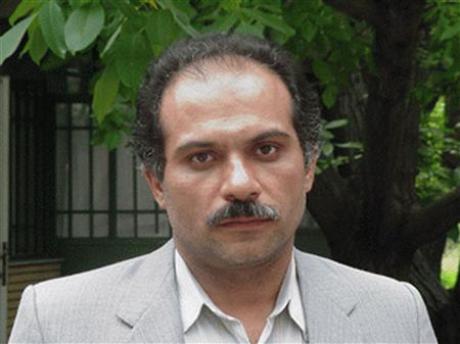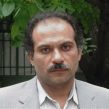
Mystery Persists in Assassination of Iranian “Nuclear Scientist” in Tehran
Publication: Terrorism Monitor Volume: 8 Issue: 3
By:

The January 12 Tehran assassination by bomb blast of Masoud Ali-Mohammadi, a professor of physics at the University of Tehran, invites the prospect of new tensions over Iran’s controversial nuclear program (Islamic Republic News Agency [IRNA], January 12). The assassination comes as Tehran faces the possibility of new U.N. Security Council sanctions following the passing of the latest deadline to respond to economic and technological incentives in return for Tehran’s cooperation over its nuclear program. Who killed Ali-Mohammadi and why? And what implications could his death have in regard to the ongoing nuclear negotiations?
The Iranian regime described Ali-Mohammadi as a “staunch” supporter of the Islamic Republic who was involved in Iran’s nuclear program, insinuating that foreign agents were involved in his murder (IRNA, January 12; Press TV [Tehran], January 12). Shortly after the explosion, Iran’s foreign ministry blamed Israel and the United States for carrying out the operation with the help of a pro-monarchist group that seeks to re-establish the Iranian monarchy (IRNA, January 12). In other media accounts, the assassination was described as a desperate act by the Western powers to hold back the country’s nuclear research (Islamic Republic of Iran Broadcasting [IRIB], January 12; Fars News Agency, January 12). While Supreme Leader Ayatollah Ali Khamenei praised Ali-Mohammadi as a martyr, the hardliners in power identified the culprits as those who seek to inhibit Iran’s scientific progress and prevent the country from developing nuclear technology (Fars, January 16). A number of conservative news websites compared the terrorist act with Israel’s airstrikes on Iraqi and Syrian nuclear facilities and alleged attacks on Egyptian nuclear scientists (Tabnak [Tehran], January 12). Hardline analysts were also quick to compare the bombing with the June 2009 disappearance of nuclear scientist Shahram Amiri, who Iran claims was kidnapped by Saudi Arabia on behalf of the United States (Payvand News, January 12).
To what extent Israel and the United States were involved remains unknown. Israel has so far refused to comment on the assassination and other possible covert operations designed to eliminate key human elements in Iran’s nuclear program (Haaretz, January 14). The U.S. State Department has publicly ruled out the possibility of American involvement, calling Iran’s accusations "absurd” (Haaretz February 2, 2009; Haaretz, January 14).
In many ways, the assassination leaves a puzzling mix of questions, beginning with why an academic at a research university, with no political links with the state, would be a target of assassination. As the Iranian Atomic Energy Agency has publicly explained, Ali-Mohammadi had no associations with the state’s nuclear program [1] In fact, Ali-Mohammadi’s latest research largely involved participation in a scientific project led by an academic association based in Jordan (Synchrotron-light for Experimental Science and Applications in the Middle East – SESAME), which conducts experimental science in cooperation with other leading academics in the Middle East, including Israeli researchers (Payvand, January 12). Not only did Ali-Mohammadi have no relations with Iran’s secretive nuclear program (run by the Revolutionary Guard), but according to a close colleague, he also had little expertise in nuclear physics. [2]
Ali-Mohammadi was not a supporter of the regime. New evidence underlines the possibility that Ali-Mohammadi had become increasingly involved in the opposition movement since the disputed 2009 elections. In his “Kaleme” website, Mir-Hussain Mousavi (the defeated 2009 presidential candidate and current leader of the opposition) described Ali-Mohammadi as a strong supporter and prominent member of the Green (opposition) movement (al-Jazeera, January 14). Mousavi also described the murder as “part of an extensive plan” to stifle dissent (Radio Zamaneh, January 15). To many reformists, the murder of Ali-Mohammadi, who is known to have participated in the post-election street-demonstrations, serves as a warning to other opposition figures and may herald a campaign of assassinations reminiscent of the 1999 wave of murders charged to Iran’s intelligence-security forces (Radio Zamaneh, January 15). The latest attack may have been meant to shift the public’s attention from Iran’s domestic turmoil to an external enemy in an attempt to stroke nationalist sentiment in a state that has lost considerable credibility since the elections.
This latest development raises new concern about the possible emergence of new tensions between Iran and the West. With the post-election unrest and subsequent crackdowns pointing to the formation of an increasingly militaristic regime, Iranian accusations of foreign assassination could trigger a conflict with the potential to destabilize the region. Moreover, the assassination of a prominent scientist could aggravate Iran’s already volatile political situation regardless of the party responsible. With the hardliners in power evidently ready to adopt a more combative foreign policy in the months to come, it is conceivable that future assassinations, whether generated internally or externally, could be used by the regime to stifle dissent at home in order to restore the stability the regime has lost since the elections.
Notes:
1. See Dr. Ahmad Shirzad’s blog; https://shirzad.ir/2010/01/post_164.html . Ali-Mohammadi was a professor of particular physics who had published numerous articles in international journals. Shirzad was a friend and a colleague of Ali-Mohammadi.
2. See https://shirzad.ir/2010/01/post_164.html.





